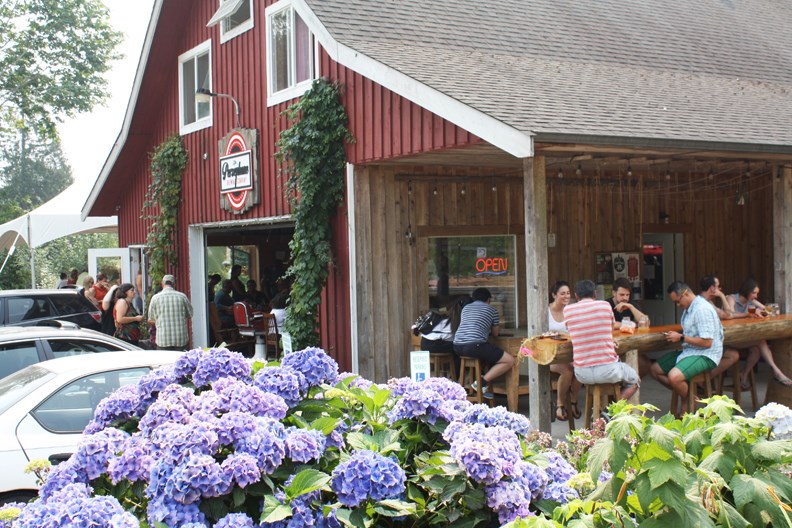The owners of Persephone Brewing Company say long-awaited changes for craft breweries on Agricultural Land Reserve (ALR) land are giving the company confidence to start planning for growth.
The province made good last week on a promise to change the rules to allow breweries in the ALR to operate under the same restrictions as wineries or cideries when it comes to sourcing their ingredients.
Persephone had been leading the fight for changes since the Agricultural Land Commission (ALC) ruled in 2016 that the brewing facility, tasting room and other parts of the operation were not valid non-farm uses because less than 50 per cent of the ingredients used in its beer were grown on the protected farmland. The ALC gave Persephone two years to “demonstrate compliance” or relocate the brewery, tasting room and food truck to non-ALR land.
The ALC ruling prompted a petition drive and even became a talking point in the legislature as well as an election issue – at least in Powell River-Sunshine Coast.
The changes announced by Agriculture Minister Lana Popham allow breweries to operate within the ALR if “they source at least 50 per cent of the primary farm product used in their alcohol from their own and other B.C. farms.”
In a release Popham said, “These changes reflect our commitment to make B.C. better for farmers and food and beverage processors. We have heard loud and clear from local governments, the BC Chamber of Commerce and industry that these changes were needed to make things fair and equitable, and to support opportunities for economic growth in our province’s agricultural sector.”
Powell River-Sunshine Coast NDP MLA Nicholas Simons said he’s glad to see the new government moving ahead on its promise.
“The craft brewery sector is a strong and growing one, and when we can support its use of British Columbia ingredients, the agricultural sector also benefits. The government is going to continue to work on promoting the industry and ensuring regulations are in the public interest,” Simons told Coast Reporter.
Simons, as well as other local candidates in the last election, supported the changes, and the Sunshine Coast Regional District sponsored motions at the Association of Vancouver Island and Coastal Communities and Union of BC Municipalities.
Persephone’s Brian Smith said that support was vital in getting the changes through, and with the new rules the company can plan ahead with a lot more confidence.
“We have plans to continue to grow more food, grow more hops and crops in our fields, grow our cider operation and add more apple trees and grow our beer production,” he said. “All of that was on hold because it was difficult to raise investor confidence and dollars and financing. All of that now can start to get back in motion.”
Smith said Persephone doesn’t anticipate any problem meeting the new requirements. It already gets about 60 per cent of its main ingredient, barley, from B.C. suppliers and as more brewers get into the business, there’s likely to be an increased demand.
“I think it’s going to be a good story, not just for our community but other communities where agriculture is a big part of the economy.”
He also said, however, the changes put forward by the government aren’t perfect and more work is needed at the ALC and the ministry toward finding innovative ways to use agricultural land.



